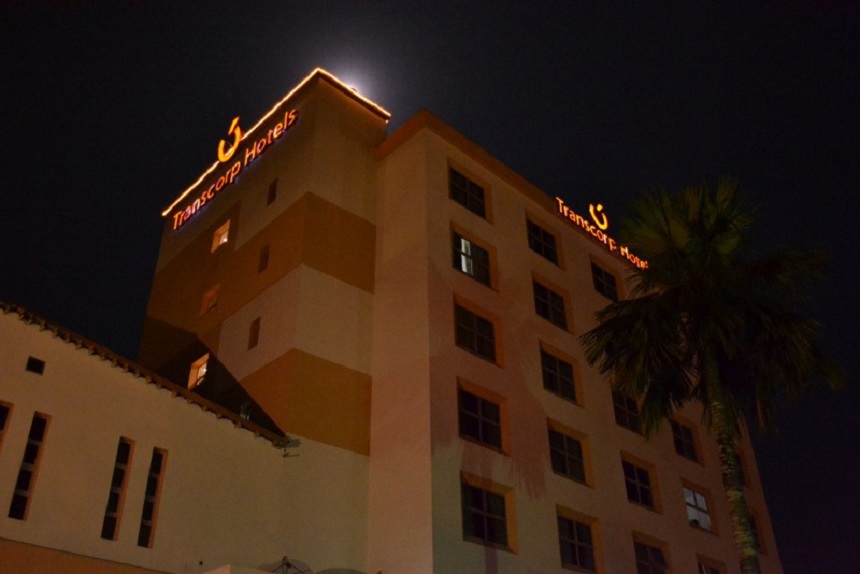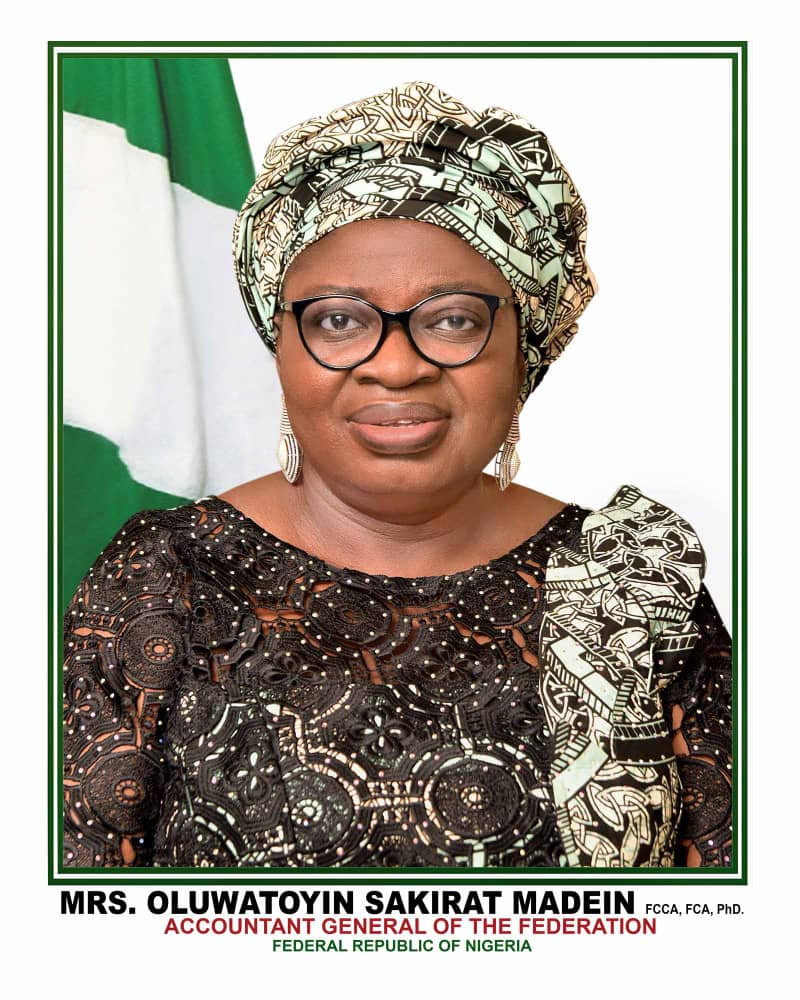Economy
GCR Affirms A-(NG) Rating on Transcorp Hotels

By Modupe Gbadeyanka
Global Credit Ratings (GCR) has revealed affirming the long term and short term national scale issuer ratings of A-(NG) and A2(NG) respectively, assigned to Transcorp Hotels Plc with the outlook accorded as Stable.
The rating firm noted that concurrently, the national scale ratings accorded to the following bond Issuances were also affirmed: Series 1 N10bn Fixed Rate Bond – A-(NG), Stable Outlook; and Series 2 N9.8bn Fixed Rate Bond – A-(NG), Stable Outlook, pointing out that both the long and short term issuer and bond ratings are valid until August 2018.
GCR, in a statement, said it accorded the above credit ratings to Transcorp Hotels Plc because it remains one of the most prominent hotel brands in the country, benefitting from strong shareholder support and an operational agreement with Hilton International.
It point out that although, earnings derive predominantly from the Abuja hotel, construction of Lagos and Port Harcourt hotels will help to diversify revenue sources over the medium term. In the interim, ongoing refurbishments to the core Abuja hotel should consolidate its leading position in the upper scale market.
The challenging operating environment in 2016 (with the economy in recession), drove a significant decline in tourism and hospitality sector volumes, which severely impacted hotel patronage across the country.
Despite this, and given the fact that some floors were shut for renovation (for a number of months), revenue remained resilient, rising by 10% to N15.3bn in FY16. This was largely attributed to the increased business development and marketing activities, which kept occupancy rates at the hotel around 60% (well above the industry average of 35%), and improved inflows from food and beverage.
However, as economic activity remained sluggish at the start of 2017, with patronage reduced by the closure of the Abuja airport for six weeks, 1H FY17 revenue of N6.2bn evidenced a 23% year-on-year decline and lagged budget on an annualised basis.
Notwithstanding the top line growth, the impact of inflation, as well as the devaluation in the Naira value, led to an increase in both direct costs and overheads (personnel, energy), partly reversing gains reported from the implementation of cost saving measures in FY15. Operating income fell to N4.1bn (FY15: N4.7bn), translating to a 26.8% margin, the lowest over the last five years. With economic challenges persisting, and a further reduction in operating income to N856m at 1H FY17, it appears unlikely that the full year profitability target will be achieved.
Cost overruns on current capex projects (including refurbishment of the Abuja hotel) necessitated additional loans to meet the shortfall in funding. As such, total debt rose by a net N3.6bn to a high N24.2bn at 1H FY17. Whilst gross gearing remained moderate at 47% at 1H FY17 (FY16: 41%), gross debt to EBITDA rose to 891% (FY16: 408%) and net interest coverage was relatively low at 1.1x in FY16.
If persisting, such low debt coverage metrics are not consistent with companies in the ‘A’ band. Despite the economic challenges, THP still reports robust operating cash flows (N1.4bn at FY16 and N2.3bn at 1H FY17), underpinned by a strong cash generation and a favourable working capital position.
However, the continued payment of high dividends amidst falling cash flows and high capex, places additional strain on liquidity.
Given that the Bonds are senior unsecured obligations of the Issuer, the Series 1 and Series 2 Bonds bear the same rating as the Issuer. Any change in the rating assigned to the Issuer will directly affect the Bonds ratings.
Positive rating action is only likely once the current capex programme is successfully completed, with minimum unexpected costs incurred, as well as an improvement in the operating environment. This should translate to improved earnings and also enhance profitability over the medium term. Conversely, persistently weak debt service metrics could result in negative ratings actions. This could be driven by continued weakness in operating performance, or delays and cost overruns related to capex.
Economy
Champion Breweries Concludes Bullet Brand Portfolio Acquisition

By Aduragbemi Omiyale
The acquisition of the Bullet brand portfolio from Sun Mark has been completed by Champion Breweries Plc, a statement from the company confirms.
This marks a transformative milestone in the organisation’s strategic expansion into a diversified, pan-African beverage platform.
With this development, Champion Breweries now owns the Bullet brand assets, trademarks, formulations, and commercial rights globally through an asset carve-out structure.
The assets are held in a newly incorporated entity in the Netherlands, in which Champion Breweries holds a majority interest, while Vinar N.V., the majority shareholder of Sun Mark, retains a minority stake.
Bullet products are currently distributed in 14 African markets, positioning Champion Breweries to scale beyond Nigeria in the high-growth ready-to-drink (RTD) alcoholic and energy drink segments.
This expansion significantly broadens the brewer’s addressable market and strengthens its revenue base with an established, profitable portfolio that already enjoys strong brand recognition and consumer loyalty across multiple markets.
“The successful completion of our public equity raises, together with the formal close of the Bullet acquisition, marks a defining moment for Champion Breweries.
“The support we received from both existing shareholders and new investors reflects strong confidence in our long-term strategy to build a diversified, high-growth beverage platform with pan-African scale.
“Our focus now is on disciplined execution, integration, and delivering sustained value across markets,” the chairman of Champion Breweries, Mr Imo-Abasi Jacob, stated.
Through this transaction, Champion Breweries is expected to achieve enhanced foreign exchange earnings, expanded distribution leverage across African markets, integrated supply chain efficiencies, portfolio diversification into high‑growth consumer beverage categories, and strengthened presence in the RTD and energy drink segments.
The acquisition accelerates Champion Breweries’ transition from a regional brewing business to a multi-category consumer platform with continental reach.
Bullet Black is Nigeria’s leading ready-to-drink alcoholic beverage, while Bullet Blue has built a strong presence in the energy drink category across several African markets.
Economy
M-KOPA Nigeria Plans Expansion to Edo, Others After N231bn Credit Milestone

By Adedapo Adesanya
Emerging market fintech firm, M-KOPA, has announced plans to deepen its reach in Nigeria to the South South and South East regions, starting with Edo this year, after providing N231 billion in credit to over 1 million customers in the country.
The firm released its first Nigeria-focused Impact Report, which showed that Nigeria is M-KOPA’s fastest-growing market and fastest to reach the milestone.
Since its foray into the Nigerian market in 2019, M-KOPA has been working to dismantle barriers to financial inclusion by providing flexible smartphone financing and digital financial tools that align with how people in the informal economy earn and manage their money.
It operates in six states in the country, including Lagos, Ogun, and Oyo, among others.
The report highlights the company’s contribution to income generation, digital inclusion and economic opportunity for Every Day Earners across the country.
The report showed that M-KOPA has enabled 290,000 first-time smartphone users, while 56 per cent of agents accessed their first income opportunity through the platform.
It showed high income and livelihood gains among its users, with about 77 per cent of customers leveraging smartphones or digital loans obtained through the platform to generate income, indicating that access to financed devices is directly supporting micro-entrepreneurial activity and informal sector productivity.
Furthermore, 75 per cent of users report higher earnings since gaining access to M-KOPA’s services, suggesting measurable improvements in personal revenue streams. On the distribution side, 99 per cent of agents disclose increased earnings, reflecting positive spillover effects across the company’s value chain.
In addition, 81 per cent of long-term customers state that their household expenses have improved, pointing to enhanced financial stability and better consumption smoothing over time.
Speaking on the report, Mr Babajide Duroshola, General Manager, M-KOPA Nigeria, said, “Nigeria represents extraordinary potential, and we’re proud that it has become M-KOPA’s fastest-growing market. Our Impact Report shows that when Every Day Earners gain access to the right digital and financial tools, they use them to create stability and long-term progress for their families. This is about access that unlocks opportunity and sustained prosperity.”
On its expansion plans Nigeria-wide, the M-KOPA helmsman said, “Many of the states we are considering are already similar to the ones we are currently in proximity… So, there is proximity and similarity between these states, and that’s what we are going to do, starting with Edo.”
He noted that as M-KOPA Nigeria continues to expand, the focus remains on ensuring more everyday earners gain access to the digital and financial tools they need to build resilient, prosperous futures in Nigeria’s rapidly digitising economy.
Economy
Tinubu Okays Extension of Ban on Raw Shea Nut Export by One Year

By Aduragbemi Omiyale
The ban on the export of raw shea nuts from Nigeria has been extended by one year by President Bola Tinubu.
A statement from the Special Adviser to the President on Information and Strategy, Mr Bayo Onanuga, on Wednesday disclosed that the ban is now till February 25, 2027.
It was emphasised that this decision underscores the administration’s commitment to advancing industrial development, strengthening domestic value addition, and supporting the objectives of the Renewed Hope Agenda.
The ban aims to deepen processing capacity within Nigeria, enhance livelihoods in shea-producing communities, and promote the growth of Nigerian exports anchored on value-added products, the statement noted.
To further these objectives, President Tinubu has authorised the two Ministers of the Federal Ministry of Industry, Trade and Investment, and the Presidential Food Security Coordination Unit (PFSCU), to coordinate the implementation of a unified, evidence-based national framework that aligns industrialisation, trade, and investment priorities across the shea nut value chain.
He also approved the adoption of an export framework established by the Nigerian Commodity Exchange (NCX) and the withdrawal of all waivers allowing the direct export of raw shea nuts.
The President directed that any excess supply of raw shea nuts should be exported exclusively through the NCX framework, in accordance with the approved guidelines.
Additionally, he directed the Federal Ministry of Finance to provide access to a dedicated NESS Support Window to enable the Federal Ministry of Industry, Trade and Investment to pilot a Livelihood Finance Mechanism to strengthen production and processing capacity.
Shea nuts, the oil-rich fruits from the shea tree common in the Savanna belt of Nigeria, are the raw material for shea butter, renowned for its moisturising, anti-inflammatory, and antioxidant properties. The extracted butter is a principal ingredient in cosmetics for skin and hair, as well as in edible cooking oil. The Federal Government encourages processing shea nuts into butter locally, as butter fetches between 10 and 20 times the price of the raw nuts.
The federal government said it remains committed to policies that promote inclusive growth, local manufacturing and position Nigeria as a competitive participant in global agricultural value chains.
-

 Feature/OPED6 years ago
Feature/OPED6 years agoDavos was Different this year
-
Travel/Tourism10 years ago
Lagos Seals Western Lodge Hotel In Ikorodu
-

 Showbiz3 years ago
Showbiz3 years agoEstranged Lover Releases Videos of Empress Njamah Bathing
-

 Banking8 years ago
Banking8 years agoSort Codes of GTBank Branches in Nigeria
-

 Economy3 years ago
Economy3 years agoSubsidy Removal: CNG at N130 Per Litre Cheaper Than Petrol—IPMAN
-

 Banking3 years ago
Banking3 years agoSort Codes of UBA Branches in Nigeria
-

 Banking3 years ago
Banking3 years agoFirst Bank Announces Planned Downtime
-

 Sports3 years ago
Sports3 years agoHighest Paid Nigerian Footballer – How Much Do Nigerian Footballers Earn



















